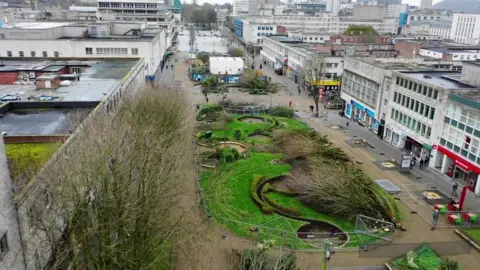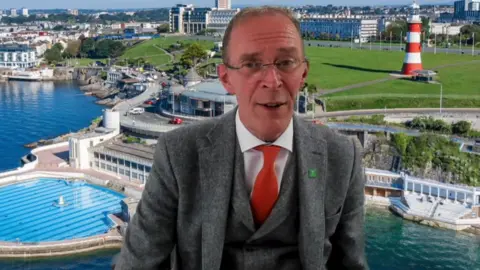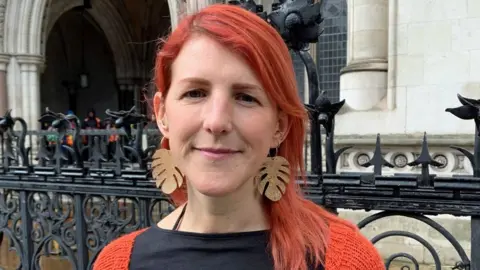Plymouth tree felling 'really good' for city, council official says
 BBC
BBCA senior council official has insisted a redevelopment scheme behind the felling of 110 trees in Plymouth will be "really good" for the city.
Giles Perritt, the council's assistant chief executive, was speaking after campaigners succeeded in getting the High Court to extend an injunction on Friday preventing further felling.
Council leader Richard Bingley, who faced a no confidence vote over the felling, intends to resign on Monday.
Mr Perritt said: "Change is difficult."
Speaking to BBC Radio 4's Today programme, Mr Perritt added that felling the trees "will be really good for Plymouth in the short and medium term".
"We are really anxious to work with people who are unhappy with what we're doing and make sure we deliver a fabulous result for the city centre," he added.

The redevelopment scheme would replace a "tired 1980s" shopping precinct which, once the shops shut, became a "dangerous and unhappy place" with a modern area which could be enjoyed all year round, he said.
"We are very pleased we are able to continue removing the trees that have already been felled and making our city centre a little more habitable for pedestrians, shoppers and businesses who work there."
Challenged about the loss of the trees, he said 169 new trees would be planted and insisted the council had changed the plans after previous consultations with residents showed support for the existing mature trees.
"There are going to be more trees and more biodiversity," he said.
Mr Perritt also responded to criticisms that the tree felling had taken place late at night, saying the council "always does tree works in busy places at night".
He added it was "normal practice for any sensible council".
Asked about the imminent departure of council leader Mr Bingley, Mr Perritt said he could not comment on politicians' motivations, but stressed previous administrations had also given major support to the redevelopment programme.
'Serious issue'
At the High Court in London on Friday, Sir Ross Cranston backed protesters' bid to keep the injunction stopping felling in place pending a full legal challenge over the council's actions.
"The injunction will continue. The remaining trees cannot be felled at least for the time being," he said.
He added: "Once they are gone they are gone", adding there was a "serious issue to be tried" over the lawfulness of the council's decision-making process.
Trees which had already been toppled, as well as fallen branches and stumps, can be removed subject to an expert report.
Plymouth City Council argued the felling had to be done before the pre-election period, noting it was not a legal requirement, but a preferable one.
Council boss Richard Bingley signed an executive order allowing the scheme and soon after, the trees were felled after dark on 14 March.
In response, campaigners obtained an injunction which was served in the early hours.
 PA Media
PA MediaIn a statement released after the hearing, the council said it aimed to "transform a tired and run-down part of the city centre".
"High Streets up and down the country are struggling. Our decision to transform Armada Way was a mandated, democratic decision, agreed by Plymouth City Council's elected members," it said.
The council said it acknowledged people's concerns, but said others were "very clear they want this change".
On Friday, Alison White, head of campaign group Save the Trees of Armada Way, said her group was "really happy with the decision" made by the High Court.
"The decision to completely destroy our urban forest against overwhelming public opposition in a way that avoided public scrutiny is indefensible."

Follow BBC News South West on Twitter, Facebook and Instagram. Send your story ideas to [email protected].
